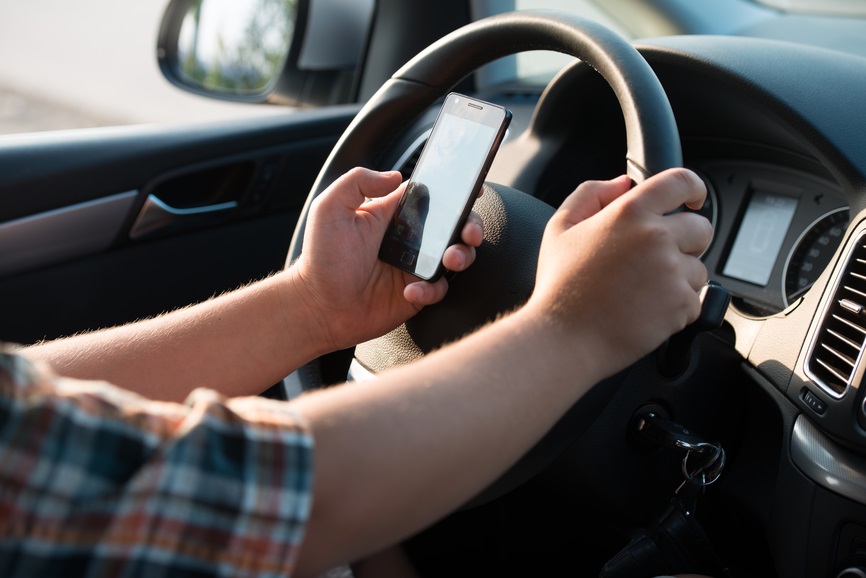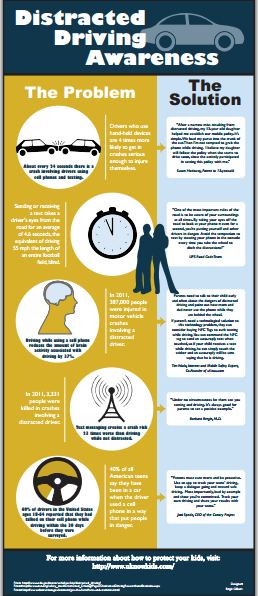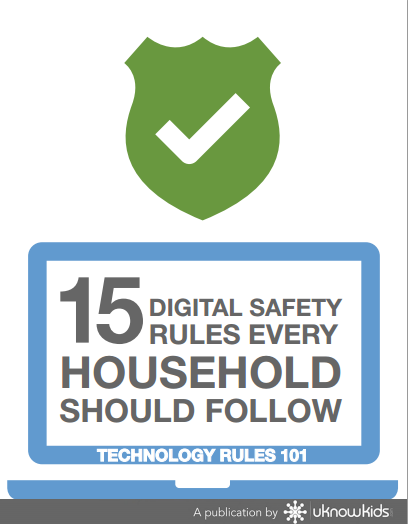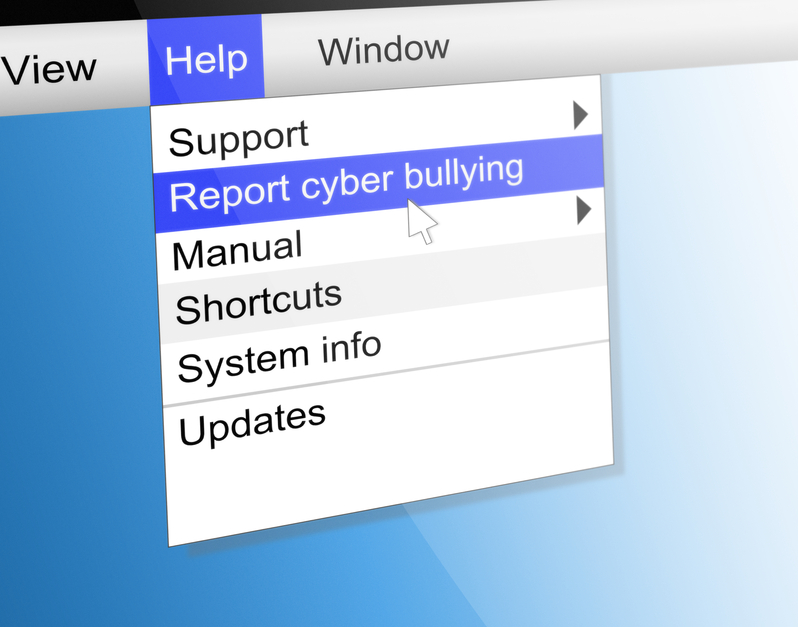Our next guest blog post on digital parenting and distracted driving comes from Dr. Barbara Bergin in Austin, Texas. Read on to learn her approach on how to get teens to stop texting while driving.
I’m pretty sure my kids have texted while driving. I know they make phone calls while driving. I’m sure they don’t drink and drive. These are my worst fears for them while they’re driving. When I was a kid my parents told me not to pick up hitch hikers! That was the worst thing I could do when driving in the early 70s. I was a newly hatched driver before seat belts were required and before all the negative publicity came out about drinking and driving. People did that all the time! And then, without thinking twice, they threw their bottles out the window along with their fast food bags!
I had a couple of philosophies regarding child rearing, and I went back to them over and over again when I raised my kids. The first was to recognize that all I could do with my kids was to ask them to do the right thing. I couldn’t force them to do it. Sure I could punish them for not doing the right thing, but I couldn’t really force them to do anything…and remain a good parent. So I resorted to my own forms of asking.




.jpg)













